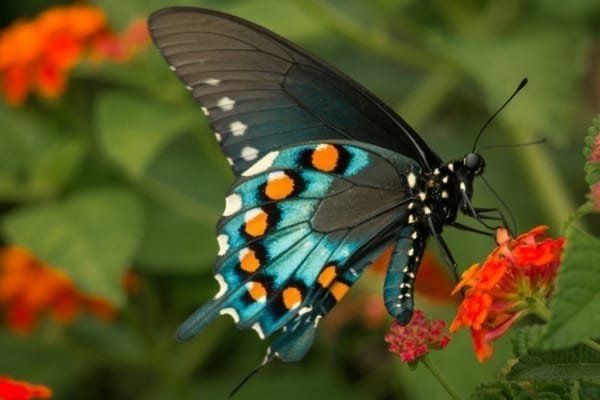It’s no secret that many insects are struggling worldwide. But we could fix these insects’ problems, according to more than 70 scientists from 21 countries.
Their road map to insect conservation and recovery is published in Nature Ecology & Evolution this week. It proposes urgent ‘no-regret’ solutions and proposes long-term global comparisons.
Human-induced stress on insects
The goal is to start insect recovery soon, says initiator Prof. Jeff Harvey from the Netherlands Institute of Ecology (NIOO-KNAW) and Vrije Universiteit Amsterdam.
Evidence is growing that all over the world, insect species are suffering from multiple human-induced stress factors, including habitat loss and fragmentation, pollution, invasive species, climate change and overharvesting.
‘As scientists, we want to gather all available knowledge and put it to action together with land managers, policy makers and everyone else involved.’
PROF. JEFF HARVEY
Netherlands Institute of Ecology (NIOO-KNAW)
Predators to pollinators
The roadmap is based on achieving targets over different timescales. More than 70 experts from all continents joined the effort, including book author Dave Goulson and leading scientist Hans de Kroon, whose study on insect biomass decline is well-known.
‘Essentially, we are thinking strategically and this is novel’, explains Harvey. ‘Now and down the road, all to reverse insect declines.’
Insect abundance, diversity and biomass are frequently under pressure. It affects all functional groups – from predators to pollinators. The scientists state that ‘insects are vitally important in a wide range of ecosystem services of which some are indispensible for food production and security, as in pest control.’
Action for insects
The steps to be taken are divided into immediate, mid- and long-term actions. First of all, there are a number of actions coined as ‘no-regret solutions’ that can be taken immediately and regardless of new knowledge still to come, as they will not just benefit single insect species.
Secondly, there is the urgent need to prioritise which species, areas and issues need our attention the most.
 Play Video about This Rock Might Just Save The World
Play Video about This Rock Might Just Save The World Play Video about Play 2 hours of rock
Play Video about Play 2 hours of rock Play Video about Play 2 hours of brook
Play Video about Play 2 hours of brook Play Video about Play 2 hours of sheep
Play Video about Play 2 hours of sheep











































